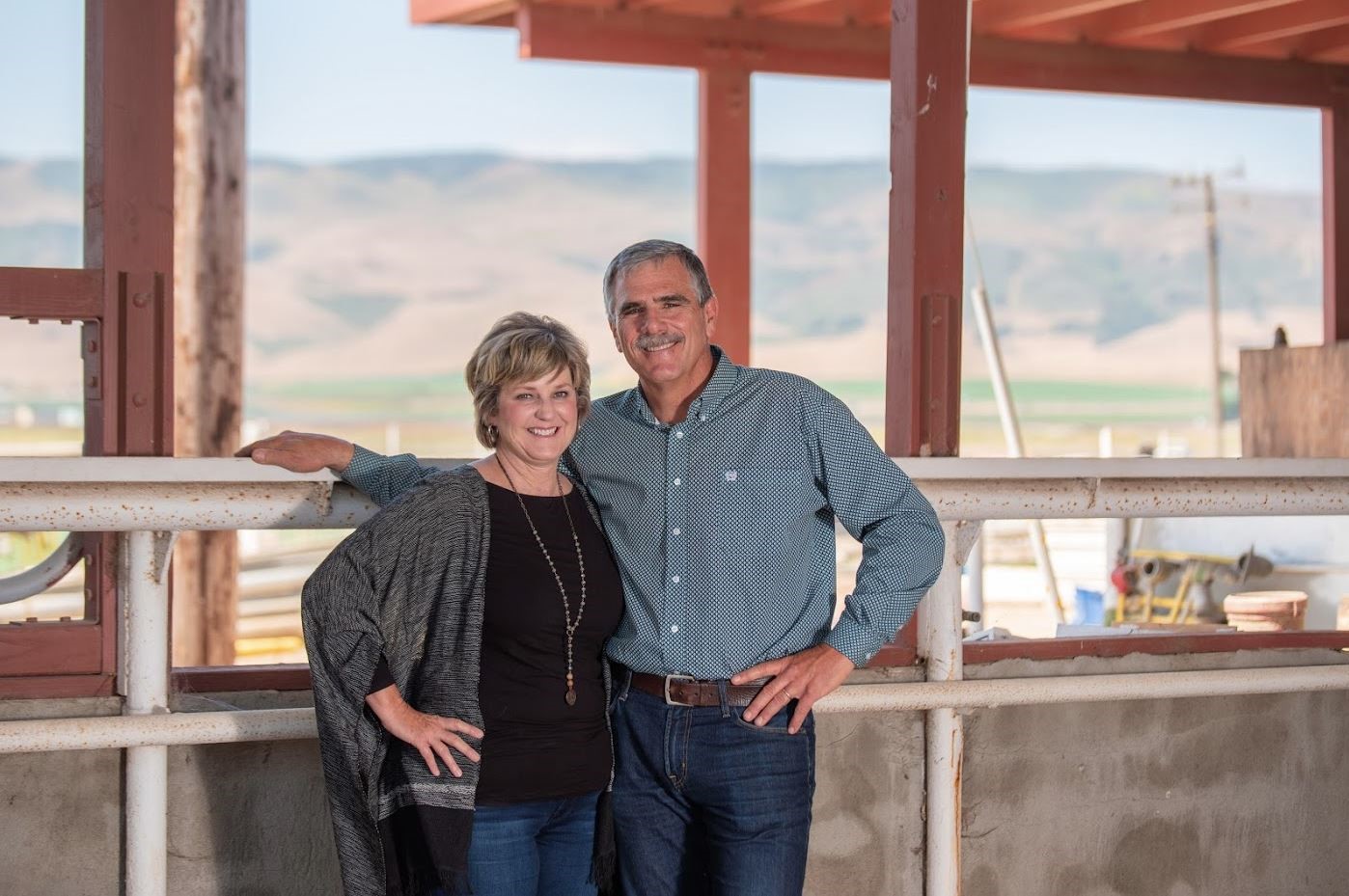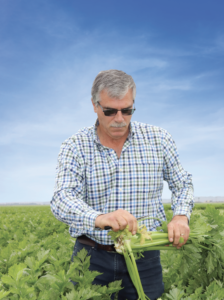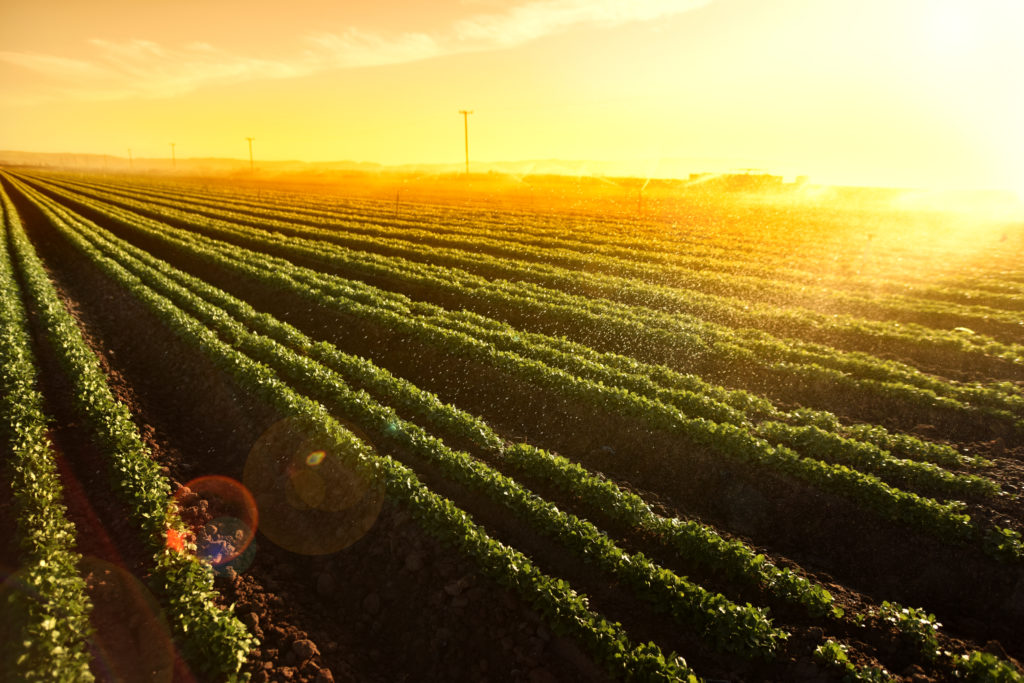
Sep 30, 2021
Multi-generational stewardship at Innovative Produce grows sustainable organics
Sustainability and environmental stewardship have long been key ingredients at Innovative Produce Sales. The sixth-generation Santa Maria, California, grower-shipper of organics possesses deep roots in the Santa Maria Valley and traces its family farming heritage to the mid-19th century.

Innovative Produce Sales, a grower-shipper
based in Santa Maria, California.
Photo: Lacy Litten
“We’re passionate about farming and production practices that result in the healthiest and most delicious organic and conventional products,” said George Adam, president and owner. “We take sustainability seriously.”
In California’s colorful Santa Maria Valley, Innovative grows more than 15 organic and conventional produce commodities on approximately 4,000 crop acres each year. Add a little more than 2,000 land acres under lease. The acreage means Innovative is able to plant multiple crops on a plot of land each year. About a quarter of its acreage is organic.
Innovative’s organic portfolio includes Brussels sprouts, cauliflower, celery, carrots, mini sweet peppers, cilantro, Italian parsley, kale, Tuscan kale, romaine, romanesco, spinach and strawberries. Innovative’s conventional catalog includes Brussels sprouts, cauliflower, celery, kale, romaine, spinach, mixed leaf and iceberg.
“Sustainability is a term that has many different definitions in today’s farming world,” said Adam. “In my view, sustainability should be measured in terms of the lowest non-renewable resource input per pound of yield.”
Family farming

For Innovative, it’s a lengthy family tradition of sustainability through refinement of organic practices which are often applied to conventional production.
While Innovative entered organics in the late 1990s, the family’s farming lineage goes all the way back to 1850 when William Thom Adam and son William Laird Adam immigrated from their native Scotland to America. The elder Adam farmed in the Salinas and Hollister, California, region from 1856 until his 1875 death.
Like many immigrants, the Adams were seeking a better life. The memoirs William L. Adam wrote detail the trials he endured and show his commitment to perseverance, education and strong moral values.
James E. Adam Sr., William L. Adam’s son and the family’s third generation, followed his father in cultivating Santa Maria Valley crops. John F. Adam Sr., son of James E. Adam Sr., also worked the land and formed a partnership with William P. Adam and Kenneth Adam, forming Adam Bros. Farming. Adam Bros. Farming was among the first to replace horses by integrating tractors into farming.
In addition to Adam Bros., John F. Adam Jr. and Richard E. Adam, sons of John F. Adam Sr., created Adam Farms Inc., which began in 1954, and was a pioneer in introducing plug transplants to the industry.
In 1994, Adam Farms Inc. was dissolved. Its successor, A&A Farming Inc., was started by Jim Acquistapace of Acquistapace Farms and George Adam, another son of John F. Adam Sr.
In the latter part of the 1990s, A&A started growing organic strawberries, carrots, cilantro, Italian parsley, kale, Tuscan kale, spinach, celery, cauliflower, romaine and broccoli. The A&A partnership ended in 2008, the year George Adam and his wife Debbie, who is Innovative’s chief financial officer and co-owner, incorporated Innovative.
Stewardship and innovation

In the Santa Maria Valley, the Adam family possesses a track record of caring for the land and water. Adam family members worked to form the Santa Maria Water Co., which delivered surface water though wooden flumes to the city of Santa Maria and surrounding irrigated farmland. They also worked to build Twitchell Reservoir, which supplies water and protects the area from flooding. The Adams were also involved in a decade of litigation developing a sustainable groundwater resolution for the lower Santa Maria Basin.
Dynamic growing practices and continual adaptation mark Innovative’s production.
“This continual improvement is our top priority,” said George Adam. “Our practices are sustainable and earth friendly.”
In the field, Adam was one of the first growers to develop drip tape retrieval systems, which allowed for economic and sustainable production of salt-sensitive crops.
The company touts its inventive farming practices. Changing plant bed size, for example, helped with efficiencies. Moving to wide beds increased Innovative’s production and decreased water and fertilizer usage. Innovative fabricates machinery to automate harvesting of crops, such as Brussels sprouts, for example, that were handpicked in the past.
During the past 10 years, Innovative expanded its organic operations.
“We see this sector of our organization as one with unbridled potential and, as a company, we are making considerable investments to further our knowledge and understanding of organic growing practices in order to better meet the needs of consumers,” said Adam.
Technology remains a central part of the farm’s operations. This is particularly true with the many challenges growers face attracting and retaining labor. Innovative has invested in labor-reducing and production-enhancing technologies to promote economic and resource stability, said Adam. The labor-saving technologies are crucial for farms to remain competitive.
“In my view, since the Santa Maria growing district has some of the highest rents and wages in the world, we, as a company, must have some of the most efficient production systems in place to compete with other regions,” said Adam. “Managing marketing and growing options have become a vital aspect of the business.”
Farming a wide variety of crops also helps. By diversifying its crop portfolio, Innovative created a sustainable rotation that maximizes soil nutrients, promotes plant health and minimizes crop inputs.
Meeting challenges

Adapting to the changing times can be challenging, particularly with all the numerous rules growers must contend with.
“At times, the regulatory burden of a disengaged political leadership is difficult to navigate,” Adam said. “The ability to be able to capture the premium values and developing technologies associated with organic farming will prove to be a critical part of the path to future success.”
Through multi-generational stewardship, the Santa Maria Valley checks many of the desired boxes, Adam said. First, the Santa Maria groundwater basin is not currently in overdraft, even after being litigated.
Add to the mix the region’s long growing season. The length of season for many Santa Maria crops is March to November, which makes it an ideal location to maintain a consistent schedule on acreage within a 10-mile radius, as opposed to hundreds or even thousands of miles for other commodities.
“The Santa Maria growing district has one of the longest growing seasons for strawberries in the world, and consequently, some of the highest organic yields and lowest inputs per-pound produced,” Adam said.
Strategic planning remains a key part of sustainability. Environmental and economic sustainability are constantly balanced. Each crop’s environmental impacts are evaluated in relation to factors including long-term impacts to water quality, soil disease, soil organic matter, timing of harvest and planting, all while maintaining economic sustainability through market diversity, Adam said.
That market diversity is the most important part of sustainability and has hastened it.
“Without the competitive management of costly inputs, we cease to exist as a company,” Adam said.
The financial focus pays off. Annual per-acre gross revenues have increased tenfold between each of the last three generations. The figures jumped from $20 to $200 to $2,000 to $20,000 per acre, said Adam.
Crops for the community
Community involvement is an important component of Innovative’s mission. The company supports fundraisers for charitable organizations promoting educational opportunities and improving the quality of life and economics of disadvantaged groups.
“It is vitally important to be involved with the community in which we live and serve,” said Adam.
Eating right is also a goal. Innovative funds organizations that educate local residents on eating healthily, as well as the challenges of growing food.
“We must dispel the myth that produce comes from the back of the grocery store,” Adam said.
Firmly planted in the Santa Maria Valley, many extended Adam family members are involved in the farming industry. They may have started their own companies or are employed by others. Philip Adam, chief operating officer/general manager, is George and Debbie Adam’s son. Travis Grande, George and Debbie Adam’s son-in-law, recently joined as shop/equipment manager.
“Our family has done what we can to set up future generations for success,” said George Adam. “The questions that face the next generation are increasingly complex. We’re serious about produce that exceeds the highest quality and safety standards, and are passionate about leading the agricultural industry into a safe, sustainable and healthy future.”






